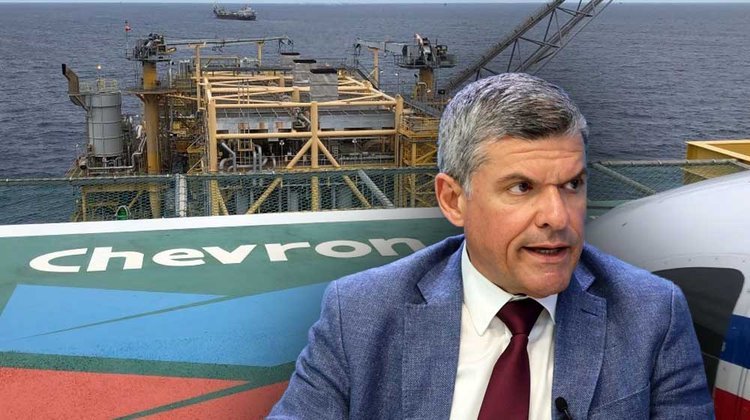A "mutually beneficial" agreement has been reached with Chevron over "Aphrodite"
15:33 - 01 December 2023

The Republic of Cyprus and American colossus Chevron have reached an agreement on the "Aphrodite" development plan, ending a months-long consultation period plagued by disagreements.
The involved parties' alignment in terms of the broader framework for the exploitation of the "Aphrodite" natural gas field has been confirmed by the letter from Chevron received by the Ministry of Energy, Trade and Industry on 1 December.
In its letter, Chevron, the managing company of the "Aphrodite" field, addresses the points outlined in the Ministry's letter, dated 20 November.
Therefore, as a Ministry's announcement states, "With the consensus that has now been reached, the parties are intensifying our discussions in the coming weeks, on the basis of the agreed Development and Production Plan, for the mutually beneficial exploitation of the natural gas reserves at Aphrodite."
Besides, according to the Associated Press, which cites a government official, the Cypriot government and the American energy company Chevron have reached an agreement on how to develop the "Aphrodite" field, which is the first to be discovered in the Cypriot Exclusive Economic Zone.
It is recalled that the field is estimated to contain 4.2 trillion cubic feet of gas.
As the publication reports, according to the same official, "the agreement is "mutually beneficial" for both Cyprus and the company," without revealing more details.
The deal ends protracted negotiations that stalled the development of the field for years and now clears the way for hydrocarbon extraction twelve years after the field was discovered.
It is recalled that the dispute that arose between the Ministry of Energy and the consortium was the installation or not of equipment above the deposit. In particular, the point of contention was whether or not to use a floating production unit (FPU) platform above the field, so that after pumping the natural gas can be processed, compressed, and sent via pipeline to Egypt.
With the use of a floating platform, what the Republic of Cyprus seeks to achieve is, firstly, the pumping of larger quantities of gas faster and in more volume, the least possible losses of natural gas and of course the presence of the floating platform, which includes several hundreds million euro worth of equipment that could be used for other deposits.
In the event that the Government had accepted the consortium's proposal, which did not include the installation of a platform, the natural gas after extraction would be transported without any treatment, through pipelines to Egypt, using special compressors. This would greatly reduce the pumping rate as well as the quantity produced. It is noted that the distance of the pipeline from the "Aphrodite" deposit to the terminal in Egypt is estimated at approximately 500 kilometers
It is noted that the cost of a new FPU platform can be as much as one billion euros, however, according to sources, one of the alternatives that has been worked out between the interested parties, is whether this could be achieved either by using a used platform, which might also have been useful in the future for other consortia active in the Cypriot EEZ.
(Source: InBusinessNews)

